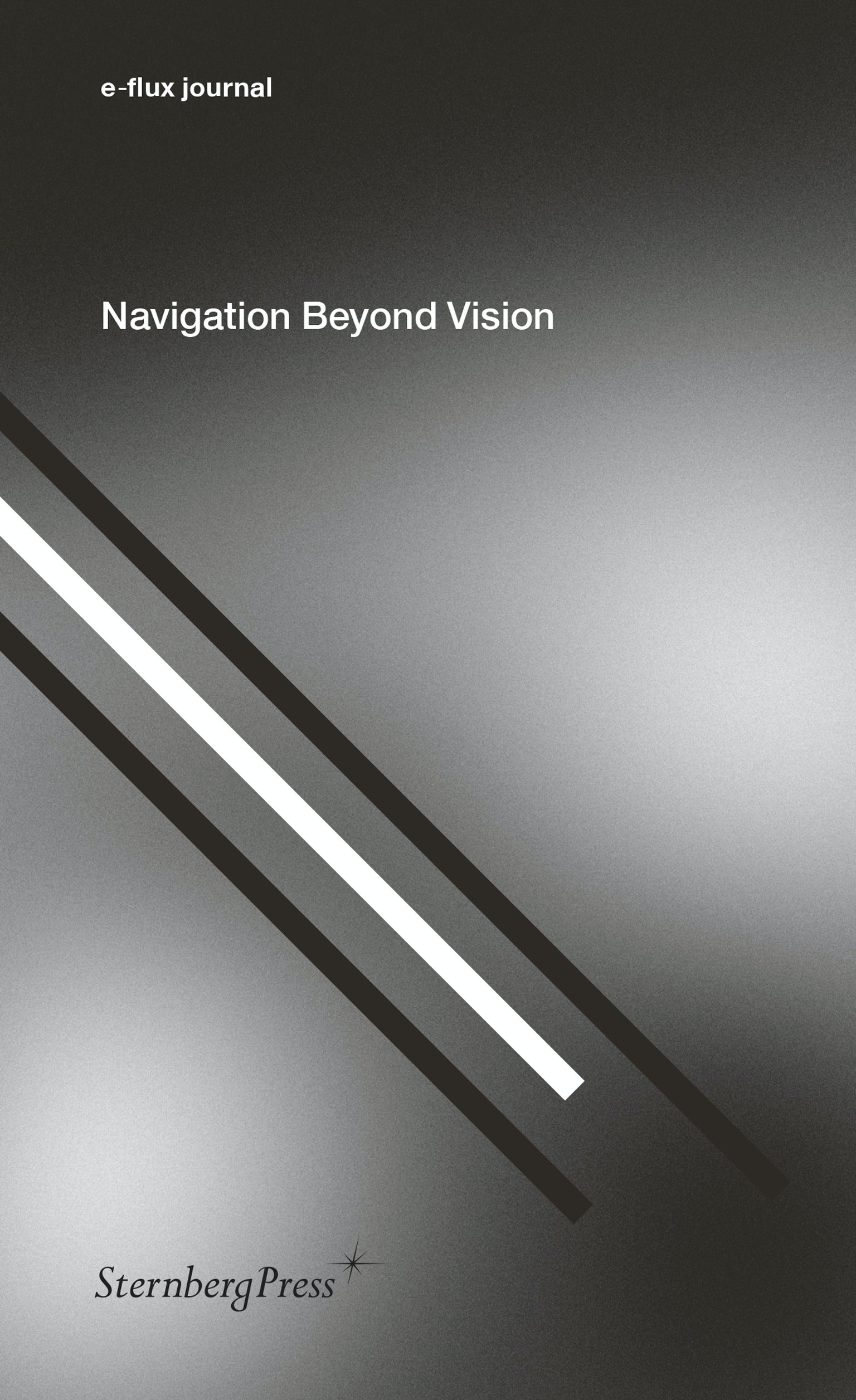Navigation beyond Vision
2023
(Reprint of "Orientation in a Big World", original 2019) In Navigation beyond Vision, eds.: T. Holert, D. Mende (New York/Berlin: e-flux/Sternberg), 2023. Link

Through the synthetic lens of the discrete and the continuous, it can be said that locations or sites not only exist in and have relations to neighborhoods of broader contexts, but that this relationality feeds back into them. This means that sites or situations are co-constituted by extra-local relations. There exists an array of contextual conditions that co-produce any instance of localization. Today this isn’t even a difficult idea; it’s part of everyday life for those with internet connectivity, even if it doesn’t lend itself to direct experience in many cases. Being online entails relations with both the locations that serve as sites of material extraction for our machines, and the specific laborers doing the work; additionally, the computational parsing of our requests instantiates chain reactions (columns) across variously geolocated jurisdictions and entities at once, regardless of the happenstance, physical location of the user. In operational terms, this contemporary condition means that humans are multiply located—a distributed form of situatedness. This in no way erases the concretely differential experience of locational embodiment, but offers a more extensive, local/extra-local picture of “being situated” in view of the path dependencies that constitute the planetary scale. Location is partially defined by a specificity of experience, but it is irreducible to that which can be directly experienced. Although this may appear to be a useless academic framing of location, when evoking a concept like “systemic oppression” there is already a gesturing to both scales of location: the causal forces of distributed localizations that co-produce a concretely localized (embodied, lived, and known) experience of oppression.
Patricia Reed, "Orientation in a Big World: On the Necessity of Horizonless Perspectives" (Reprint, original 2019), in Navigation beyond Vision, eds.: T. Holert, D. Mende (New York/Berlin: e-flux/ Sternberg), 2023. Link

